Smart & Final’s history dates back to 1871 when it was founded in Los Angeles under the name Hellman-Hass Grocery Co. It was the first grocer to introduce the concept of “cash & carry” west of Chicago. At the time, grocery stores required a clerk to collect goods for customers. The ability to serve yourself and save time was a modern marvel in our dusty ranching town.
Now with more than 250 stores in California, Arizona and Nevada, it stands as one of the oldest and longest continually operating food retailers in the United States, celebrating 150 years this month.
Whether it’s a Michelin starred chef, legendary film actor, famous farmer or frazzled mom the night before a bake sale, everybody’s got a Smart and Final story.
“When I was seven years old I walked into a Smart & Final for the first time with my mom who was the head of the PTA,” Rosie Squieri, Group Vice President of Construction and Procurement, who has been with the company more than 20 years, tells L.A. Weekly. “She was shopping for the school, buying snacks and candy for the snack bar. Years later, when I was a store manager, I used to get those frantic moms all the time. I think my mom was more excited about me getting hired at Smart & Final than I was at the time.”
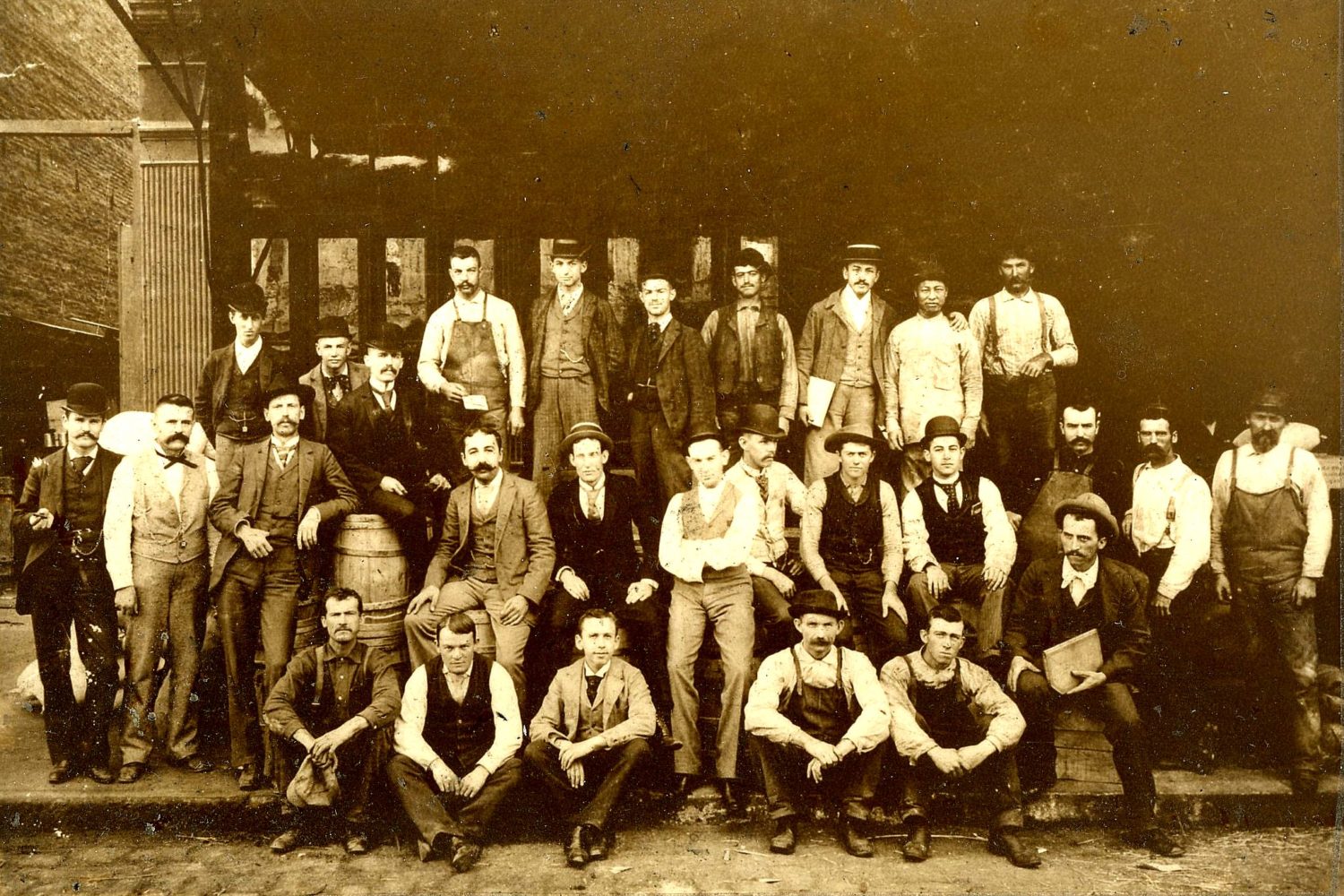
Hellman Haas Associates in the 1890s (Courtesy Smart & Final)
Originally housed in a two-story brick building on Los Angeles Street, Hellman-Haas Grocery Co. sold necessities of the day including flour, brown sugar, salt, patent medicines, rope, sheepherding supplies, chewing tobacco and gunpowder, according to Smart & Final history. Packaged goods were unknown. Hellman-Haas Grocery Co. food staples arrived in bulk and typically were sold by weight. There were prunes in huge casks, barrels of currants from Greece and rice.
By the turn of the century, the sole owners of Hellman-Haas were Abraham Haas (brother of Jacob Haas) and Jacob Baruch, who bought out Herman Hellman, Jacob Haas and Bernard Cohn. The company name was changed to Haas, Baruch & Co. in 1889.
Creating what might be one of the earliest private label brands in the United States, Haas, Baruch & Co. introduced a line of canned tomatoes under the name of “Iris,” with packaging to emphasize the cans’ high-quality contents. The grocer’s sales reached $2 million by 1895 – a huge sum at the time.
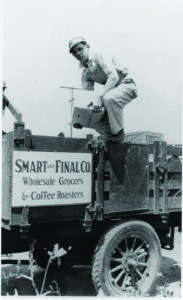
Historic Ruxtel Axle Ford Truck, late 20s (Courtesy Smart & Final)
Meanwhile, another grocery store, the Santa Ana Wholesale Grocery Company, which was founded in 1912 to supply feed and grain to local farmers, was sold in 1914 to J.S. “Jim” Smart, a banker from Saginaw, Michigan. Jim was then joined by partner H.D. “Hildane” Final, and the company name changed to Smart & Final Wholesale Grocers. The business relocated near the docks in San Pedro, and by 1919, sales had surged to $10 million.
In 1953, Smart & Final merged with Haas, Baruch & Co., keeping the Smart & Final name. The company shifted its headquarters to Vernon, California, which was quickly becoming the preferred distribution location for a number of wholesale and retail companies and still is today. Shortly thereafter, the company was acquired by supermarket chain Thriftimart and grew to 83 units. In 1984, Thriftimart, Inc. changed its name to Smart & Final Iris Corporation.
It’s not just cheapskates like me looking to get the biggest bang out of my buck or those last-minute bake sale items that frequent the warehouse chain. My cart has bumped into the likes of Michelin-starred chef Luigi Fineo grabbing some organic produce, Weiser Family Farms patriarch Alex Weiser buying coffee, and legendary M.A.S.H and Dangerous Lies Actor Elliott Gould popping in for his afternoon cranberry juice run.
“Smart & Final is just one of those brands that has flown under the radar,” says Squieri. “Even though it’s a chain it feels like a neighborhood store. The managers treat it as if it was their own. When I was a manager I knew all of my customers by name.”
Sue Mullins, Group Vice President, Store Support and Smart & Final’s first female district manager has been with the company for 34 years. She credits the success of the grocery warehouse store to a culture of collaboration, equal growth opportunities for all employees and keeping that neighborhood feel introduced by Hellman and Haas 150 years ago.
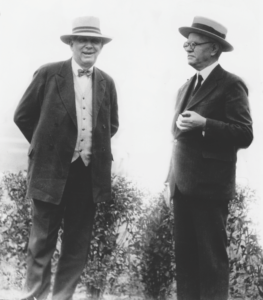
Mr. Smart and Mr. Final (Courtesy Smart & Final)
“You might start out pushing carts or stocking shelves at night, and end up responsible for the whole store,” says Mullins. “People move very quickly and stay a long time. The culture is collaborative, we challenge each other to continue to improve. You can speak freely and make suggestions. There’s a lot of opportunity to be heard and to grow.”
At the very beginning of the pandemic, when the idea of putting up plexiglass barriers at cashier stations to protect customers and employees was merely a conversation, Smart & Final was one of the very first to install them in L.A. stores.
Also deeply rooted in the company culture is staying connected to its individual communities through the Smart and Final Foundation. Established in 2002, the foundation works to give back and help nourish local communities throughout California, Arizona and Nevada. Charitable giving initiatives focus on health and wellness, education, hunger relief, team sports and youth development, as well as disaster relief. In 2020, the foundation raised almost $2 million to support nearly 1,500 causes.
“Our managers know their customers, which in my experience wasn’t the same at other grocery stores,” says Mullins, who herself hired Squieri more than 20 years ago. “While the cashiers might be pleasant at other stores, it’s just not the same experience as when somebody knows you and your buying habits.”
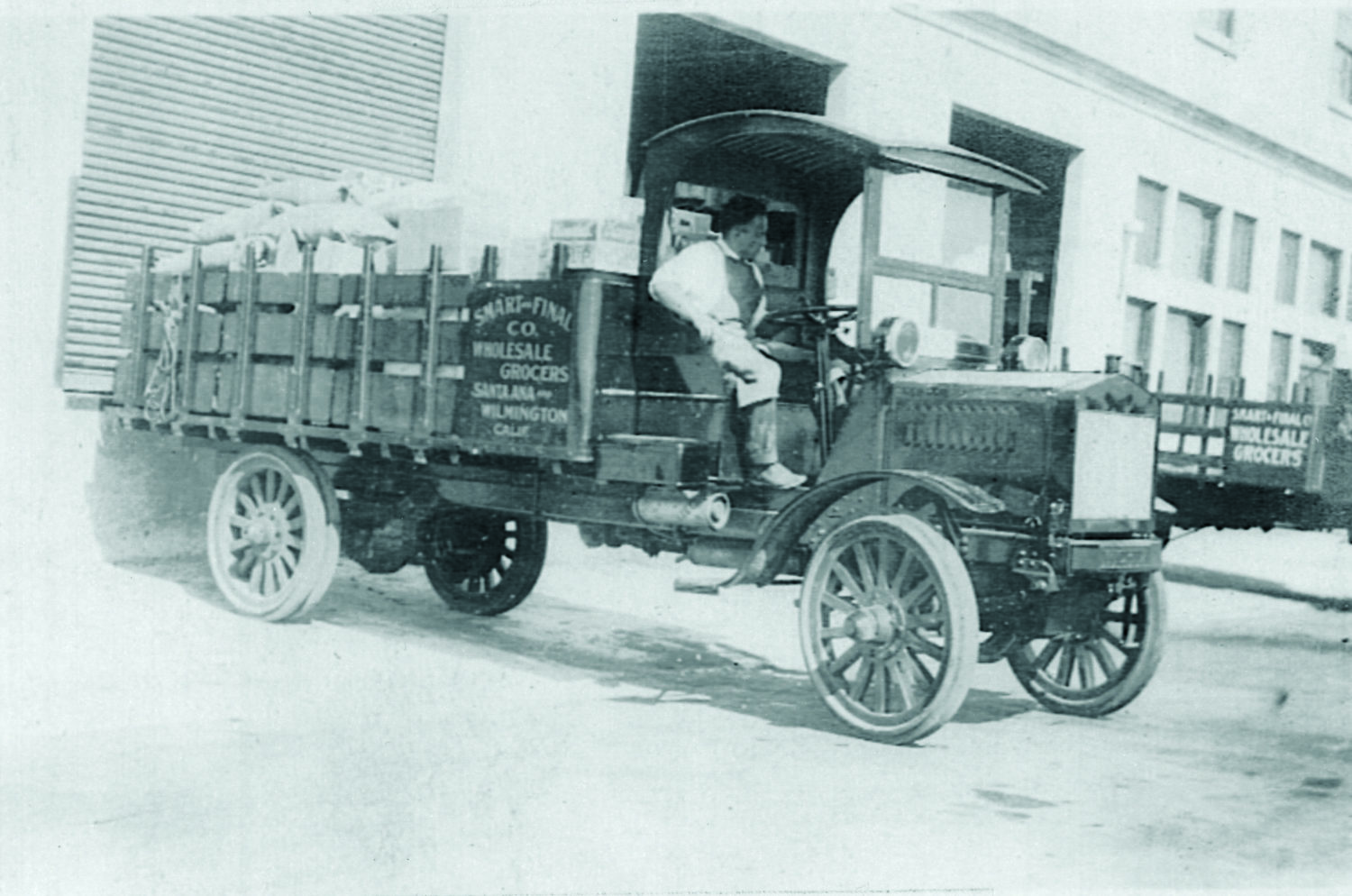
Courtesy Smart & Final
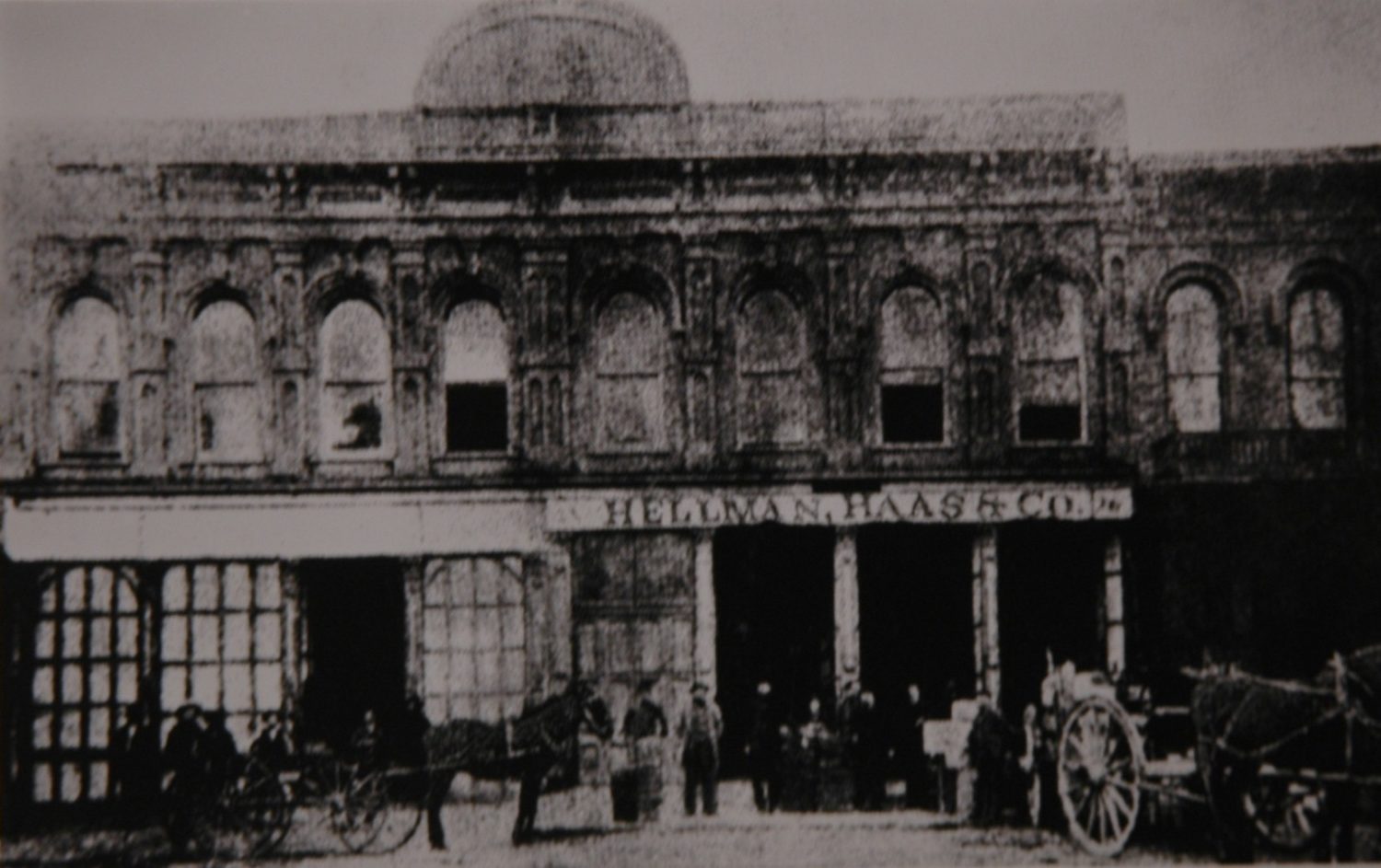
Helman Haas Co in Los Angeles (Courtesy Smart & Final)
The post One Of L.A.’s First Grocery Stores, Smart & Final Celebrates 150 Years appeared first on LA Weekly.


0 Commentaires